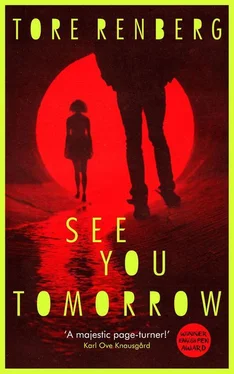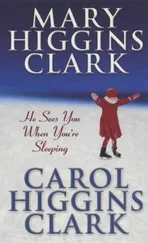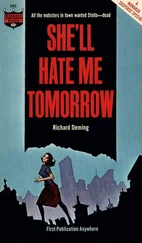‘It’s all good,’ he says, lying, ‘conscious dieting. You know. Middle-age spread. Have to stay trim. Cut back on frozen pizza. Watch the carbs. Working out a good bit lately, actually.’
‘Hm,’ she says, in disbelief. ‘You haven’t become a spinning instructor too, have you? So, how much time do we have? Enough for a coffee in my old house before we have to go?’
He smiles again, aware once more of how she manages to make imminent events disappear from his mind, but shakes his head. ‘No,’ he says, lying again, ‘we’re a little pushed for time.’
‘Oh,’ says Christine, and pouts before extending her tongue, ‘you know how tetchy I get without coffee. You’ve been warned, ex-hubby.’
‘Yeah, I’m bricking it,’ he says, laughing as he revels in how nice it is to be with someone he can be effortlessly flippant with; it’s how he and Christine were at their best, it was precisely this tone that drove the days onward. He smiles warmly and for a moment forgets all his anxiety. He says: ‘But you’ll have to go without, unless you want to skip seeing your daughter perform, and just have a cup of coffee in Stavanger before you fly back out again.’
He’s aware of how, in the space of a few seconds, he’s begun to speak differently; speak like her. At her speed, with her tongue. As though he were imitating her.
Was that how it was?
‘Hm,’ Christine says, ‘I think I’ll choose coffee.’
‘Come on,’ he says, locking the front door. He’s been standing outside the house with the key ready for almost a quarter of an hour, because he doesn’t want her going inside. She’d only walk around passing remarks on this and that in the brusque, effortless manner she has.
His plan is a bad one. But it’s the only one he’s got.
They walk down Ernst Askildsens Gate and Pål feels a composure in his stride. Perhaps one of the neighbours can see them from a kitchen window, and thinks it strange to see them together again. Maybe it was already strange back when she lived here. An odd couple — him so timid and ordinary, her so outré and out-there. The fact that the two of them got together was surprising to themselves; it must have been surprising for others.
‘What is it she’s going to si—’ says Christine, halting in mid-sentence: ‘Oh Jesus. Evanescence. It’s so turgid.’
He shrugs. ‘What did you like when you were thirteen?’
She ponders the question for a moment as they peel off to the right, cross the street, and continue along by the low-rises. ‘Thirteen? We’d be talking Wham! for the most part.’
Christine stops for a moment. She takes in the surroundings. Her eyes are calm, as is her body, that fabulous concentration of hers has stirred, that ability she has to dedicate herself to one purpose, which has got her where she is.
‘Yeah,’ she says, mainly to herself. ‘Yeah.’
‘What?’
‘I can hardly fathom it, Pål, that I used to live here.’
He looks away, towards the trees.
‘What the hell was I thinking?’ she sighs.
Pål feigns interest in the trunks of the trees, letting his eyes linger on them.
‘I don’t particularly remember that much of it. Of my time living here, I mean. It all feels very distant to me.’
That’s one thing you were always adept at, he thinks as he allows his gaze to sweep down a tree trunk and fall upon the ground, you were always adept, Christine, at trampling on things other people liked. He refrains from responding, takes a few steps to indicate they’re pushed for time, and she snaps out of her musing just as quickly as she’d fallen into it, and soon she’s the one in front of him as they make their way down towards the school.
Then he suddenly stops in his tracks, just as he’s planned. He tries not to overdo it, does his best to be just as good a liar as he has been for months, and the slight put-down, the earlier remark she made, has provided him with that little extra he needs. Then he lifts his hands up and takes a sharp intake of breath: ‘Aw shit.’
He says it as though talking to himself.
It looks real.
‘What?’
He looks at her, shakes his head a little.
It looks genuine as well.
‘Sorry, I’m such a numbskull—’
‘What?’
‘The candles. I—’
She rolls her eyes.
It’s working.
‘Pål, Pål, Pål.’
‘Yeah, I know.’
‘Candles in September?’
‘Mhm,’ he nods and points. ‘I won’t be long. You go on ahead, that’ll be even cooler, you coming on your own. Five minutes, tops, that’s all it’ll take me.’
Then he runs.
‘Candles in September,’ Pål mumbles while he looks at the tarmac blur under his feet and has a horrible feeling of having deserved all of this, the hate Tiril is going to dish out when she realises what he’s done, the disappointment Malene is going to dish out when she realises what he’s done, the disgust Christine is going to dish out when she realises what he’s done, and the violence Rudi is going to dish out to him very soon.
Pål makes it to his own street. As he nears the house, he hears Zitha barking and he remembers how that was the first thing that entered his head the day Christine told him she’d had enough: I’m going to get a dog. You’ve refused me that all these years and that’s what I’m going to get and it’ll be such joy. Four weeks later a little puppy was running around on the carpet, gnawing at chair legs, chewing on slippers, paring its teeth down until they were sharp as scissors, snipping holes in the carpets, peeing on the parquet flooring, wagging its tail every day the girls came home from school, jumping up in their laps, licking their faces and looking up at Pål with almost unbearable trust as it lay in its basket whimpering for fifteen seconds before falling asleep. And it turned out to be true, what that idiot Bjørn Ingvar Totland said during the Christmas party at work a couple of years ago, when he knocked back a beer, looked over at Pål and said that a dog is man’s best friend and a woman man’s worst enemy.
‘Yeaah yeaah, Zitha, Daddy’s coming, yeeah.’ Pål looks at his mobile.
18:45.
93. NANCY ROSE BOTNEVASS (Rudi)
Rudi has a secret. He has it tucked away in a place of such impenetrable darkness that it’s almost hidden from him. He’s dug a hole in his soul and consigned it to the depths. Then he covered it with earth, with stones and cemented it over. He’s promised himself never to go down there again. But the mind cannot be compelled to be silent. The foulness seeps from cracks and fissures no matter how much Rudi tells it to remain below. The foul matter comes before him, presents itself. Oh no. What is it the Gospel of Luke says about repentance? ‘If your brother sins, rebuke him, and if he repents, forgive him.’ Wise words, Luke, but to whom can Rudi speak of the unspeakable? How can forgiveness come about when what we’re speaking of is the unspeakable? Who can Rudi apologise to? And if he was to be granted forgiveness, how can he undo the thing he has done?
It isn’t possible.
That’s the truth, Luke.
What you have done can never be undone.
Some nights are like that: Rudi cries. He lies beside Cecilie, weeping as silently as he can while listening to her breathing in the darkness. He clenches his powerful fists and whispers: ‘I’m sorry, my love. You must never find out, that your Rudi did the unmentionable. That your Rudi went with another woman into the deepest woods. That your Rudi went down on her, and she went down on your Rudi, that once, for a few weeks, almost fifteen years ago I was not myself. I did everything a man is capable of doing with a woman, and that woman was not you, but the daughter of the Devil, Kvinesdal’s very own poisonous flower, Nancy Rose Botnevass.’
Читать дальше












